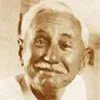Quotations by:
Durant, William James
Inquiry is fatal to certainty.
William James (Will) Durant (1885-1981) American historian, teacher, philosopher
The Age of Faith, ch. 38 “The Age of Romance” (1950)
(Source)
All deductions having been made, democracy has done less harm, and more good, than any other form of government. It gave to human existence a zest and camaraderie that outweighed its pitfalls and defects. It gave to thought and science and enterprise the freedom essential to their operation and growth. It broke down the walls of privilege and class, and in each generation it raised up ability from every rank and place.
William James (Will) Durant (1885-1981) American historian, teacher, philosopher
The Lessons of History, ch. 10 (1968) [with Ariel Durant]
(Source)
But if war continues to absorb and dominate it, or if the itch to rule the world requires large military establishment and appropriation, the freedom of democracy may one by one succumb to the discipline of arms and strife. If race or class war divides us into hostile camps, changing political argument into blind hate, one side or the other may overturn the hustings with the rule of the sword. If our economy of freedom fails to distribute wealth as ably as it has created it, the road to dictatorship will be open to any man who can persuasively promise security to all; and a martial government, under whatever charming phrases, will engulf the democratic world.
William James (Will) Durant (1885-1981) American historian, teacher, philosopher
The Lessons of History, ch. 10 (1968) [with Ariel Durant]
(Source)
Civilization is not inherited; it has to be learned and earned by each generation anew; if the transmission should be interrupted for one century, civilization would die, and we should be savages again.
William James (Will) Durant (1885-1981) American historian, teacher, philosopher
The Lessons of History, ch. 13 “Is Progress Real?” (1968) [with Ariel Durant]
(Source)
A great civilization is not conquered from without until it has destroyed itself within. The essential causes of Rome’s decline lay in her people, her morals, her class struggle, her failing trade, her bureaucratic despotism, her stifling taxes, her consuming wars.
William James (Will) Durant (1885-1981) American historian, teacher, philosopher
The Story of Civilization, Vol. 3: Caesar and Christ (1944)
(Source)
How many a debate could have been deflated into a single paragraph if the disputants had dared to define their terms?
William James (Will) Durant (1885-1981) American historian, teacher, philosopher
The Story of Philosophy, ch. 2 “Aristotle and Greek Science,” sec. 3 “The Foundation of Logic” (1926)
(Source)
This quotation is frequently misattributed (without citation) to Aristotle (sometimes using "dispute" instead of "debate"), but none of the sources pre-date this passage by Durant. Durant is speaking of Aristotle's development of logic, and his focus on definitions, but the full passage in context is clearly not a quotation:There was a hint of this new science in Socrates’ maddening insistence on definitions, and in Plato’s constant refining of every concept. Aristotle’s little treatise on Definitions shows how his logic found nourishment at this source. “If you wish to converse with me,” said Voltaire, “define your terms.” How many a debate would have been deflated into a paragraph if the disputants had dared to define their terms! This is the alpha and omega of logic, the heart and soul of it, that every important term in serious discourse shall be subjected to strictest scrutiny and definition. It is difficult, and ruthlessly tests the mind; but once done it is half of any task.
Civilization is a stream with banks. The stream is sometimes filled with blood from people killing, stealing, shouting and doing things historians usually record, while on the banks, unnoticed, people build homes, make love, raise children, sing songs, write poetry, and even whittle statues. The story of civilization is the story of what happened on the banks. Historians are pessimists because they ignore the banks for the river.
William James (Will) Durant (1885-1981) American historian, teacher, philosopher
Quoted in Jim Hicks, “Spry Old Team Does It Again,” Life (18 Oct 1963)
(Source)
Durant says this is what he came up with when asked to sum up civilization in a half-hour ("I did it in less than a minute, this way").
This source is Durant recounting the passage in a Life magazine interview, which is often mis-cited as the origin. The quote is also sometimes vaguely attributed to his and Ariel Durant's The Story of Civilization, their 11-volume work (1935-75) (the Life article was on the publication of Vol. 8, The Age of Louis XIV (1963)), but I cannot find it in any of the volumes to that date.

